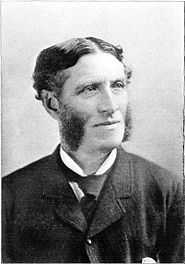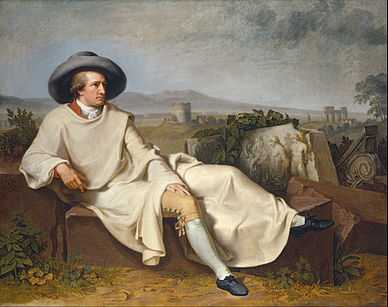Philistinism

In the fields of philosophy and æsthetics, the term philistinism describes the social attitude of anti-intellectualism that undervalues and despises art, beauty, spirituality, and intellect; ‘the manners, habits, and character, or mode of thinking of a philistine’.[1] A philistine person is the man or woman who is smugly narrow of mind and of conventional morality whose materialistic views and tastes indicate a lack of and indifference to cultural and æsthetic values.[2]
Since the 19th century, the contemporary denotation of philistinism, as the behaviour of ‘ignorant, ill-behaved persons lacking in culture or artistic appreciation, and only concerned with materialistic values’ derives from Matthew Arnold’s adaptation to English of the German word Philister — as applied by university students in their antagonistic relations with the townspeople of Jena, Germany, where, in 1689, a row resulted in several deaths. In the aftermath, the university cleric addressed the town-vs-gown matter with an admonishing sermon ‘The Philistines be upon thee’, drawn from the Book of Judges (Chapter 16, ‘Samson vs the Philistines’), of the Tanakh and of the Christian Old Testament.[3]
History
In the original German usage, university students applied the term philister (philistine) to describe a person who was not trained at university; in the social context, the term identified the man (Philister) and the woman (Philisterin) who was not of the university social set.[4] In English, as a descriptor of anti-intellectualism, philistine — a person deficient in the culture of the Liberal Arts — was common British usage by the decade of 1820, which described the bourgeois, merchant middle class of the Victorian Era (1837–1901), whose wealth rendered them indifferent to culture.
In discussing the German poet Heinrich Heine, in the book Essays in Criticism (1865), Matthew Arnold (1822–88), said that:
Philistine must have originally meant, in the mind of those who invented the nickname, a strong, dogged, unenlightened opponent of the children of the light’, whom he further described and defined as ‘the people who believe most that our greatness and welfare are proved by our being very rich . . . [they] are just the very people whom we call the Philistines.
Usages
The denotations and connotations of philistinism and philistine have evolved to consistently describe the uncouth person who is hostile to art, culture, and the life of the mind, who, in their stead, prefers the life of economic materialism and conspicuous consumption as the paramount human activities.



- 17th century
Whilst involved in a lawsuit, the writer and poet Jonathan Swift (1667–1745), in the slang of his time, described a gruff bailiff as a philistine, someone who is considered a merciless enemy.[1]
- 18th century
The polymath Johann Wolfgang von Goethe (1749–1832) identified the philistine personality, by asking:
What is a philistine? A hollow gut, full of fear and hope that God will have mercy!
Goethe further described such men and women, by noting that:
. . . the Philistine not only ignores all conditions of life which are not his own, but also demands that the rest of mankind should fashion its mode of existence after his own.
In the comedy of manners play, The Rivals (1775), Richard Brinsley Sheridan (1751–1816) identifies a violent aristocrat as ‘that bloodthirsty Philistine, Sir Lucius O’Trigger’.
- 19th century
The philosopher Friedrich Nietzsche (1844–1900) identified the philistine as a person who, for a lack of true unity, could only define style in the negative.
- 20th century
- In the novel Der Ewige Spießer (The Eternal Philistine, 1930), the Austro–Hungarian writer Ödön von Horváth (1901–38) derided the cultural coarseness of the philistine man and his limited view of the world. The eponymous philistine is a failed businessman, a salesman of used cars, who aspires to the high-life of wealth; to realise that aspiration, he seeks to meet a rich woman who will support him, and so embarks upon a rail journey from Munich to Barcelona to seek her at the World’s Fair.
- In the Lectures on Russian Literature (1981), in the essay ‘Philistines and Philistinism’ Nabokov describes the philistine man and woman as:
A full-grown person whose interests are of a material and commonplace nature, and whose mentality is formed of the stock ideas and conventional ideals of his or her group and time. I have said “full-grown” person because the child or the adolescent who may look like a small philistine is only a small parrot mimicking the ways of confirmed vulgarians, and it is easier to be a parrot than to be a white heron. “Vulgarian” is more or less synonymous with “philistine”: the stress in a vulgarian is not so much on the conventionalism of a philistine, as on the vulgarity of some of his conventional notions. I may also use the terms “genteel” and “bourgeois”. Genteel implies the lace-curtain refined vulgarity, which is worse than simple coarseness. To burp in company may be rude, but to say “excuse me” after a burp is genteel, and thus worse than vulgar. The term bourgeois I use following Flaubert, not Marx. Bourgeois, in Flaubert’s sense, is a state of mind, not a state of pocket. A bourgeois is a smug philistine, a dignified vulgarian . . . generally speaking, philistinism presupposes a certain advanced state of civilization, where, throughout the ages, certain traditions have accumulated in a heap and have started to stink.[5]
- In the Lectures on Literature (1982), in speaking of the novel Madame Bovary (1856), about the bourgeois wife of a country doctor, the writer Vladimir Nabokov (1899–1977) said that philistinism is manifest in the prudish attitude demonstrated by the man or the woman who accuses a work of art of being obscene.[6]
See also
References
- ↑ 1.0 1.1 Webster’s New Twentieth Century Dictionary of the English Language — Unabridged (1951) p. 1260
- ↑ College Edition: Webster’s New World Dictionary of the American Language (1962) p. 1099
- ↑ Benét’s Reader’s Encyclopedia Third Edition (1987) p. 759
- ↑ Webster’s New Twentieth Century Dictionary of the English Language — Unabridged (1951) p. 1260
- ↑ Nabokov, Lectures on Russian Literature, essay Philistines and Philistinism
- ↑ Nabokov, Lectures on Literature, lecture on Madame Bovary